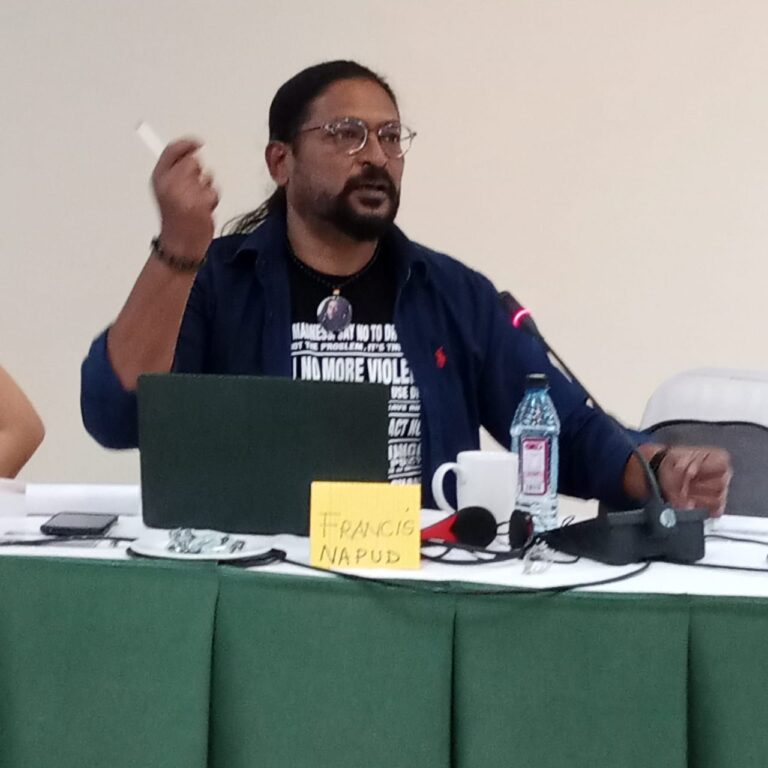APCOM and NAPUD Call for Strengthening Community Leadership to end AIDS as a Public Health Threat by 2030 in Asia and the Pacific
Ahead of the Joint United Nations Programme on HIV/AIDS (UNAIDS) 51st Programme Coordinating Board (PCB) Meeting which will be held from 13th to 16th of December 2022 in Chiang Mai, Thailand, which the Thai Government is the host and will be Chairing this important meeting. APCOM and NAPUD, two regional networks of key populations take stock of progress and challenges in the HIV response in Asia and the Pacific and call for a renewed commitment to strengthen community leadership to end AIDS as a public health threat by 2030.
Some of the earliest successes against the global AIDS epidemic were achieved in the Asia and Pacific region. But those gains are now under threat. Progress in reducing the number of new HIV infections in the region has slowed in recent years and some countries are experiencing sharp increases in the number of new HIV infections particularly among key populations and key locations.
Marked inequalities are stalling progress in the HIV response, and HIV is further widening those inequalities. Punitive laws, harmful policies and practices, criminalization of key populations, stigma and discrimination and gender-based violence are exacerbating the risks of HIV infection and remain critical barriers to an effective HIV response. “Equalize” is the theme that UNAIDS has chosen for World AIDS Day 2022, to urge everyone to address the inequalities which are holding back progress in ending AIDS.
Ensuring financial sustainability of the HIV response is also a challenge in this region, where there is 57% gap in the estimated annual resource needs to meet the 2025 targets. HIV resources per person living with HIV have flattened, and prevention resources need to be expanded. The UNAIDS Global AIDS Update 2022 indicates that only 10% of total HIV spending was allocated for key populations in the region in 2021 and there are big differences across countries in allocations for prevention.
The region has not met the 2020 targets. Fundamental changes are urgently needed or Asia and the Pacific will be at risk of failing to meet the goal to end AIDS by 2030 with devastating consequences.
Communities can play a critical role to address the gaps and lead change in Asia and the Pacific in collaboration with governments and national and regional stakeholders. The activism, mobilization and on-the-ground work of community-led organizations and regional networks of key populations and people living with HIV have defined the HIV response and saved countless lives since the outset of the HIV epidemic.
At the regional level, regional networks of key populations such as APCOM and NAPUD play a critical role in providing region-wide support, capacity building and technical assistance to national networks and advocating with regional and global partners for key population-led and people-centered approaches. In the countries, community-led interventions improve people’s HIV-related knowledge and attitudes, increase service access, and enhance prevention, treatment and care outcomes. The COVID-19 pandemic has underscored the critical role of community-led responses in reaching the most vulnerable populations and promoting the continuity of HIV service access.
However, the ability of communities to lead efforts to end AIDS is impeded by inadequate funding, shrinking space for civic engagement, and punitive legal and policy environments. While some progress is being made in increasing support for key populations among some countries in the region, regional networks are excluded from country specific funding and funding sources for regional advocacy activities are limited.
The UNAIDS Global AIDS Strategy, 2021-2026 prioritizes action to support the full implementation of the Greater Involvement of People Living with AIDS (GIPA) Principle to put the leadership of people living with HIV and key populations at the center of HIV responses ensuring that networks of people living with HIV and key populations are represented in decision-making bodies and can influence the decisions that affect their lives, have access to technical support for community mobilization, strengthened organizational capacity and leadership development.
Ahead of the 51st PCB, the APCOM and NAPUD draw the attention of Member States and stakeholders on critical actions to be prioritized to advance the HIV response in Asia and the Pacific and strengthen the leadership of communities at the regional and country levels to enable them to play a critical role to leave no one behind, and importantly that the Joint United Nations Programmed on HIV/AIDS (UNAIDS) must be sufficiently resourced in order to:
- Increase availability, quality and suitability of services for HIV treatment, testing and prevention for key populations, people living with HIV and young people.
- Accelerate scale up of innovations including key population-led health services and new technologies.
- Tackle the root causes of HIV vulnerability, especially inequalities and socio-economic marginalization.
- Reform laws, policies and practices to tackle stigma, discrimination and exclusion faced by people living with HIV and by key populations.
- Ensure that key populations are integrated in development of policies and programmes and that interventions are tailored and targeted to the specific needs of diverse key populations;
- Ensure that there are explicit data to capture the needs of the key populations and people living with HIV by strengthening community-led monitoring;
- Allocate investment to build and strengthen the capacity and skills of community-led organizations to enable them to advocate for the removal of social and legal barriers and to deliver HIV services;
- Identify and implement regional mechanisms to fund regional networks to enable them to provide support to country-level communities.
